In the first part of this spotlight on Osaka’s eclectic EM Records, this writer introduced his favourite releases. In this second part, I had a long, fascinating chat with its founder and owner, Koki Emura, who told me about his rules for running the label and some of his hypotheses about music. I made him tell me with which parts of his body he listens to music.
I interviewed Koki Emura twice, on the 9th September 2023 at the old EM Records office in Minami Semba, and then again on the 26th September 2023, because I had additional questions. The delay in publishing the interview was caused mainly by my poor translation skills. Apologies to all involved, but I think it’s an interview that was worth waiting for.
SS: How does it feel today, the 9th September 2023? A lot must have happened in 25 years, but how do you feel now, how does it feel to be doing EM Records in 2023?
KE: Well, I feel like I’ve been doing this for a long time, but I still have more releases I want to put out, so it’s a strange feeling. At the beginning, I had no idea that I would be doing it for so long. But there is so much more music I want to release. That’s how I feel.
SS: Are you having fun?
KE: Yes, I’m having fun!
SS: Has the mood changed during these 25 years?
KE: We do it because it’s fun. Of course, there are a lot of painful things that I can’t tell people, but that’s not something I should talk about. The fun part outweighs the pain.
SS: In that case, you’re winning!
Table of Contents
Osaka is changing
SS: You were born in Hiroshima and came to Osaka to go to college. Has Osaka changed drastically between then and now?
KE: Local feeling has been lost. I think it has faded away. When I first came here, everyone spoke in the Kansai dialect. There is a so-called standard Japanese language in Japan, but in reality, there is no such thing. There is no standard language in Japan. If there were, it would be the NHK language, which is the language used by news announcers, and used to be called Tokyo-ben or Osaka-ben. Standardization is a mystery, and everyone is speaking the language they believe is the common one all over the country. I really feel that. Even my own daughter uses a strange mixture of Kansai dialect and standard Japanese.
SS: Well, language is alive, isn’t it?
KE: Yes, but I feel like things are changing rapidly, and in Kansai, the Kansai dialect that I really felt in the past is only spoken by my grandparents.
SS: Well. So, do you feel that the Kansai dialect is gradually disappearing? The atmosphere?
EK: Yes, the atmosphere.
SS: I love the Kansai dialect. When I first came to Japan and heard the Osaka dialect, I found the sound so appealing. I thought the intonation was very energetic, whereas the so-called standard language was not very interesting. You’ve been lived in Osaka for about 35 years now, haven’t you?
EK: That’s right. Even within Kansai, speech varies a lot. The local accents in the south and the north of Kansai are slightly different. In the south, the Kansai dialect seems to be very much alive. In terms of music … is it called a “blue note”? Is the Kansai dialect a part of jazz? There is a slightly semitone mixed intonation.
Streaming music vs physical
SS: What influence has streaming music like Spotify and Apple Music had on EM Records? How did you feel when that came in?
EK: There are a lot of things about it that I still don’t understand. To take it to an extreme, if you don’t provide a song to a major streaming service, it’s as though you don’t exist in the world. But, you know, although I upload the music I release, there are millions or tens of millions of songs on streaming services, so it’s very hard to find them. The way to find music is to use search words. If you are a small company like me, there is no way you can compete with them, and if you try to, you’ll surely lose. So I try not to be a part of that competition. I don’t go down to that same stage, or I don’t participate in that competition. Instead, I have a strong relationship with record stores and value the people who work there, and I design our finances so that I can share the profits with them. I’m not serious about streaming at all anymore. I’m not even really into it at all.
SS: You have EM Records on Bandcamp, Spotify, Apple Music, and other streaming services, but you’re not focused on it?


EK: I don’t focus on it at all. I don’t really believe in that world, it’s a different world. So I don’t really believe in it. I’m not committed. Right now, everyone believes that that’s the end of it. But who knows what will happen in another 10 years or so? The currently all invasive service may fall apart in 10 years. You never know.
SS: Maybe, there will be another new way to do it.
EK: The streaming system could be crushed. It works because everyone believes in it but once everyone stops believing in it, it could collapse.
SS: We hear the term “Vinyl Revival” maybe once a month, and I think that there is a bit of truth in it, but I think there are many young people who don’t need music in a physical form. I sometimes feel that digital music is its purest form, but I’ve been buying music since I was 5 or 6 years old so I’m hooked on vinyl. However, recently I played John Coltrane’s “A Love Supreme” to a musician friend on vinyl and from streaming, and they were really surprised at the difference they could hear.”
EK: They really mess around with music on streaming services, but I think it’s great that your friend could tell the difference.
SS: It surprised me so much that they could hear such a difference.
EK: I mean, it’s a big change. My children are digital natives, so what they hear is probably different from what I hear, but it doesn’t make much sense to think about it.
SS: Have you talked about those things with your children? Listening to music at home on a record player with good speakers.
EK: No, not really, she’s still in middle school. For me, it’s a job, but for her, she used to play records when she was little, but it was just a game. When she really wanted to listen to music, she would listen to it while watching YouTube on TV or with headphones on. I don’t know that feeling.
SS: If I’m at home, I play records. When I’m out walking, I listen with a small digital player and headphones. I’m OK with the difference between digital and physical music.

2023: The 25th Anniversary of EM Records
SS: We were talking about the 25th anniversary of EM Records this year, when is the party?
EK: I don’t have parties, I don’t like that kind of thing, for the 20th anniversary, I made some stickers and t-shirts. I had never done anything for the previous anniversaries, but I was told by people around me that I should do something for the 20th. I did it, but I didn’t like doing it.
SS: Do you ever DJ at events?
EK: I’ve done a little, but I don’t much care for that either.
SS: Do you ever think about doing some special gigs with artists that you have released on your label, for example?
EK: Not really. I used to do it before COVID happened. It’s hard for me to do it by myself now, so I do it when I have a group of people to do it with.
SS: Many places have closed down, like Pikaspace in Shinsekai, where my friend used to promote gigs. Because of COVID, they closed down, then opened a ramen shop. Now it has changed again. People have also had to get used to going to gigs again. At the 1st gig I went to after COVID, I had a panic attack and had to leave.
EK: We had to start all over again after those 2 years. The stop changed things. I hope I can get back on my feet again, but it’s hard to say how things will work out.
SS: Well, I’m glad Bears didn’t close, that would have been a disaster!
EK: Yes, it would be a great loss for indie music in the Kansai region of Osaka.
SS: Maybe EM Records needs an event organizer.
EK: Some of our fans like parties, like to go to festivals. I myself have never been to a festival, and probably never will, because my listening life is completely different, and I think differently about festivals.
Osaka musicians and EM Records
SS: To change the subject a bit, at the moment there are quite a few bands from Osaka on your recent releases. For instance, 7FO is from Osaka.
EK: Goat is also from Osaka.
SS: Other than those musicians, are there others?
EK: Kumachan Seal is originally from Kansai, and Synth Sisters are also from Osaka.

Synth Sisters Euphoria (Bandcamp)
SS: To what extent do you feel that the promotion of music made in Osaka is your responsibility? Do you feel that interesting Osaka music ought to be released?
EK: I feel a little bit of a sense of mission, because I live in Osaka and I want to release my artist friends’ wonderful music when it comes out, but that feeling and whether or not I can actually release the music I want to, are two different things.
SS: Ah, so you do feel like that. Probably three years ago, you released the compilation Subscription Double Suicide which I thought was a really interesting and bold idea, to release a compilation by pretty much unknown young musicians. I think the music was chosen by an ex-member of Jesse Ruins, wasn’t it? Was it interesting choosing particular tracks from such a large music scene?
EK: Yes. I guess you could call it a music scene, but the shape of the music scene changes rapidly from time to time, and three years ago, I had a feeling that there was something unusual going on. Nobuyuki Sakuma of Jesse Ruins is the most knowledgeable person in that particular Electronic Pop genre, so I asked him about it, and he agreed that something rather strange was happening, and I had the idea of gathering it together for the compilation. Actually half of it is by musicians from Kansai and half by musicians from Kanto.
SS: Oh, really?
EK: We didn’t decide it that way at all. We never asked the musicians where they were from, because that’s a rather personal question. After we chose the tracks, that’s what happened, and I thought, that’s very cool.
SS: Oh, I thought it was all from Kansai. It seems I didn’t read the information properly. There’s a lot of American Rap and R’n’B influence on there, isn’t there?
EK: It was the biggest pop influence at the time so it was almost impossible to escape from, and it influenced almost everyone a little, but it’s a little different in certain ways. But it’s the American mainstream, isn’t it? It’s totally America’s strategy to disseminate advertising everywhere they can. It’s a network that they’ve built over the 60 or 70 years since the end of the war, so even in England, there’s plenty of information about American music. So yes, the influence is there but there are other things going on, and it’s my job to shine a light on those other things.

S.D.S =零= (Subscription Double Suicide =Zero=) (Bandcamp)
SS: Will you make another similar compilation in the future?
EK: We were talking about making a second compilation, but we haven’t decided yet. It’ll be hard to do it without another interesting movement. The social situation is different from what it used to be. You can’t force a movement, it’s something that comes naturally. It’s only been only three years, so in a little while, something might happen. It’s a living thing, you know, and the musicians on the SDS package are really the first digital natives who became adult, so these are people who have never made it to CD, never made it to record, never bought them. So I thought it would be a good moment in time to document with this package.
SS: Did you sell a lot? Was it popular?
EK: I don’t know how popular it was. We were dealing with digital natives, so physical releases don’t sell very well. I think the people who buy them are really eccentric, though. However, I noticed later that it’s popularity was spreading overseas. I found out later that in this digital age, there are a lot of people who listen to music that I never would have expected, such as a Korean musician living in New York who put some tracks on her playlist.
SS: I think the music on the album probably appeals most to young people who don’t buy physical music.
EK: Yes. That was basically what happened. I don’t remember that much. It was when COVID was just starting. Everyone was wondering what to do.
Essential releases
SS: Next, for the readers of Osaka.com, can you tell them about one or two EM Records releases that you are most proud of?
EK: Well, that’s…well…it’s a little bit difficult to answer this question because of our policy. There are so many different artists that it’s very difficult to choose.
SS: I would think that’s the case. That’s a tough one to answer.
EK: The criteria are too vague, and I’m proud of all of my releases.
SS: I understand.
EK: That’s such a typical media type interview question. Media people like to make things easy like that. It’s a bad habit. “Please describe in one word how you are feeling right now”. It’s such a difficult thing to do on the spot. It’s impossible to say how complicated human feelings are.
SS: OK, let me ask the question a little differently. Can you give an example of a release where it was very difficult to get the licensing rights, but after working very hard you finally managed to do it?
Working with Thai Producers, cultural differences
EK: I think that would be Thai musicians. The Thai producers. Surin Phaksiri, Doi Inthanon, and Thepphabut Satirodchomphu, those negotiations took a long time. It took me years.

The Essential Doi Inthanon: Classic Isan Pops from the 70s-80s (Bandcamp)
SS: Why is that? They didn’t want to do it?
EK: No, it’s a difference of cultural norms. You have to go and meet them and talk.
SS: Yes. So you went to Thailand.
EK: Yes, I had to keep going there for years. Before that, Soi48, the guys I produce with, went there and we met little by little over the years, and only after we gained trust could we talk about music. It took years to build that trust. It’s all about business customs. It’s totally different over there. In the past, in Japan business customs were based on the model of meeting and talking, but gradually Japan has been westernized and business is now done by email. The point is that now we are just exchanging symbolic information such as the terms and conditions of the license and when the license fee is to be paid. Thailand is a different model, so it doesn’t happen like that. It takes time to establish a relationship of mutual trust and understanding.
SS: Did you get a contract after all the years of meetings?
EK: Yes. But that contract is also a really simple one. It’s not a contract like a thick phone book. It’s one sheet of paper, like this flimsy piece of paper.
SS: Because you were trusted?
EK: That’s right. The business customs are different. That kind of thing. I was very happy when I was finally able to get a signed contract.
SS: I presume you had to have interpreters.
EK: Of course. I had to become familiar with the whole situation in Thailand, so I got information from the Copyright Society of Thailand, translated it, researched the differences between Japan and Thailand, learned about the musical customs there, and made sure I was well prepared and had a good understanding before I went. Without that kind of preparation and procedure, you won’t be able to release Thai music. There are some Thai music compilations and releases all over the world, but most of them are bootlegs. Basically, it’s colonial capitalism or theft, isn’t it?
SS: It’s really difficult to do it by the book, because the cultures are different, the languages are different.
Roland P. Young
SS: Another overseas EM Records musician, Roland P. Young, does he live in the United States?
EK: He lives in Israel now.
SS: EM Records relationship with him is quite long, isn’t it?
EK: It’s about 15 years.
SS: Was it easier to obtain a contract with him?
EK: I think I was the only one who was in contact with him at that time, so he was a completely individual independent artist and nobody was paying him any attention. Then he made a new album. It was amazing, so I changed my policy towards releasing new albums; for him, 5 albums. They were all great and it was very enjoyable.
SS: I bought his “Isophonic Boogie Woogie” LP from Disk Union because the jacket was interesting, but I really like the most recent album “Spontaneous Bounce” a lot more. I couldn’t believe that it was made by the same person, who is now 83 years old, isn’t he?
EK: He’s 81.
SS: I was very moved that a musician of that age could make such fascinating modern sounding music, and when I heard the album, I thought, is it the same person? Isn’t he in his thirties? That was probably the most surprising thing for me in the preparation for this interview. If music doesn’t surprise me or if I don’t get a physical reaction, I’m not really interested. And in the case of Spontaneous Bounce, the reaction was in my body, my body moved strangely, suddenly, and my back and scalp tingled, which happens when I listen to music that I really like. It’s hard to explain.
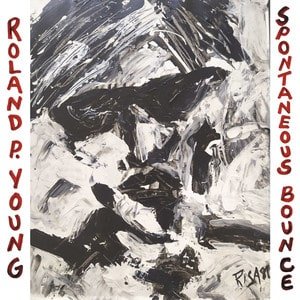
Roland P. Young – Spontaneous Bounce (Bandcamp)
Music and frisson
EK: The senses are different from person to person. You mean “goose bumps”?
SS: There are many ways to say it, recently it is being called “frisson”, but when that kind of reaction happens in my body, it feels really good.
EK: Your body’s reaction?
SS: Yes. It’s a bit like a sexual feeling. If there was no physical reaction at all, I wouldn’t care. That’s one of the questions I really wanted to ask you. When you listen to music, which parts of your body do you listen with? Just your ears, or other parts?
EK: Isn’t it your brain?
SS: Maybe the brain, but I think the brain gets in the way a lot when you listen to music.
EK: I think the feeling of being moved by music is something you can never share with other people, so I can’t really explain it, but I’m glad to hear you had that physical reaction to “Spontaneous Bounce”. That’s the beauty of music, isn’t it? There’s no logic in it, in western music it’s about where the heart and the spirit are. It’s very difficult to say where the spirit is. I’ve been asking westerners where the spirit is, here (pointing to the heart)? Here (pointing to the head)? There is a complete difference of opinion. If I have a specific body reaction, it feels like my blood pressure goes down.
SS: Your blood pressure drops?
EK: I don’t know if it goes down or up, but it feels like my hair is pulling somehow. It’s a wonderful thing isn’t it? You get it here (pointing to head)?
SS: Yes, I feel it there, all of a sudden.
EK: Me too. I don’t know how to explain it.
SS: I always have too many records, and in trying to decide which ones to keep, I decided that I should only trust my body and not my brain. Any other way, such as other people’s opinions, is a waste of time. If I don’t feel anything physical when I listen, then I don’t need it. Sometimes I would really like to enjoy a certain piece of music that others enjoy, but if I don’t, then it’s a waste of my time to try to force myself.
EK: Music is really a matter of personal experience and taste. Occasionally, an album I didn’t enjoy at all in the past has suddenly impressed me, so maybe that means that I have changed or developed. It’s probably because something inside me has changed. Also, the opposite. Why did I used to like this?
SS: Well, of course, the body changes, the range of frequencies that a person’s ears can hear also changes over time. Various things change.
EK: Things are always changing. I don’t know what will happen in the future but I’m always looking forward to things developing.
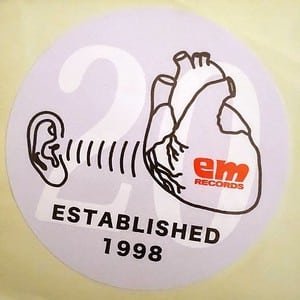
EM Records and promotion
SS: OK, another question. How do you promote a new EM Records release?
EK: I do almost nothing. I just send pre-order informations to the record shops and distributors.
SS: Do you mean that, because you’ve been doing it for a long time, and the shops know you always release interesting music, that it’s not beneficial to do more?
EK: The number of record stores in Japan is decreasing. There is a term called “release initial order,” and the initial order nowadays is less than one-fifth of what it was when I started, and I think the number of record stores in Japan is probably less than one-tenth, for example, there used to be 10,000 record stores in Japan, but now there are only about 1,000. You know, in the age of social media social media, it’s push push push: “This is the new release. Listen to it.” The more you push, the more people run away. I think the best thing to do is to find what you want to hear and listen to it by yourself. Until now, the Japanese, the U.S. and British record industries have been constantly telling people what to listen to. It was the case in the 60s, 70s, 80s, 90s, and 00s, and it is still true today. Obedient audiences accepted and listened to what they were told to do, and the record industry was able to keep their economy going. The listeners had no other choice but to listen to the radio and records. In the old days, all you had to do was accept what was being said and listen to it, but with the advent of social media, that is no longer the case.
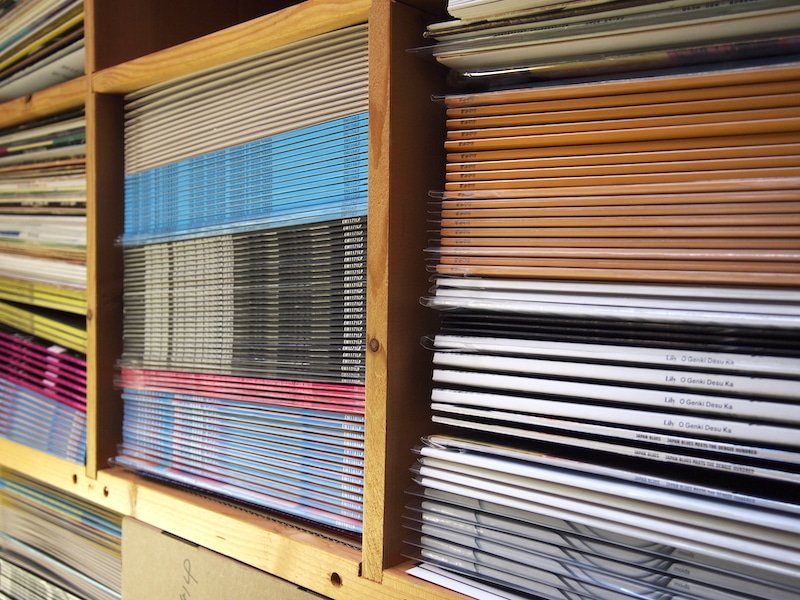
SS: So you just make a simple announcement.
EK: We’ll put it out on social network and give the release date. I have to explain about the Japanese music industry, which is a little different from the western music industry. Maybe you’ve noticed that Japanese promotion materials are different.
SS: Not really.
EK: I see both. It’s a matter of symbols. “Masterpiece” , “classic” and so on. It’s this over-expression of masterpieces and so on. That is the Japanese way of advertising, the way that has been passed down for many years, and it is becoming more and more excessive. For example, an artist says, “Band A has released their first album. It’s great. Then they put out a second album. It’s called the best work ever. The Japanese company put out a third album, “another masterpiece”, etc, etc. So I express myself differently. I use different words to describe how attractive the album is. Even now, I get quite tired when I see promotional messages. I try to write truthfully. I use simple expressions such as “Made with bass, guitar, and drums,”. Sometimes I write more poetic phrases. People are fed up with the lies that record labels tell. I think people who can see past that kind of thing are the ones who buy our releases. I never advertise excessively, because if I do, I look like a liar. I’m very happy when fans say, this EM Records album is really good, but it’s another thing to put a lot of money and effort into advertising. Do people really want to listen to an album because they’ve been told that it is a masterpiece and that they must listen to it? I don’t think so.
SS: Yes, that kind of thing often said by self-important musicians turns me off completely, but if the publicity material doesn’t say it well, the message won’t get through.
EK: Yes, you have to choose your words very carefully and don’t go overboard. I try to write in a way that is easily understood and conveyed. It’s not easy, and I usually have to rewrite it many times. Writing about music is meaningless if you don’t listen to it. The text is absolutely necessary to prepare for listening to the music. I am very careful and meticulous about that. I hope the message is understood.
SS: You do what is necessary, but no more than that.
EK: That’s right.
SS: Maybe it’s better to spend the money on something more tangible and beneficial, like really high quality mastering and quality raw materials. It’s a little expensive, but at the end of the day, people will say: “Wow! This pressing sounds so good! I recommend it.” That is a good use of money. As for promotion, I think you’re saying it’s like opening your windows and throwing money down into the street.
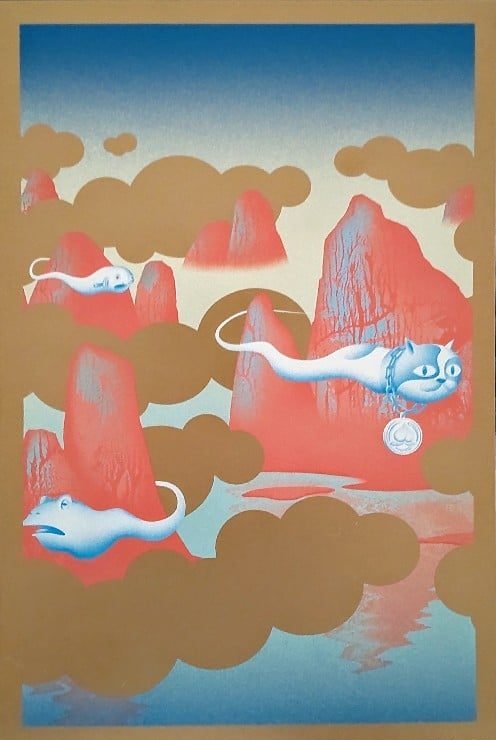
Yūtai-ridatsu ± (Plus-minus) Futoshi Moriyama (Bandcamp)
Reworks / Reinterpretations
SS: With your releases, you’ve done “reinterpretations” of pieces of music in the EM Records catalogue a number of times, haven’t you? Pulling in various musicians.
EK: Yes, several times.
SS: Can you talk about that a little? I’m thinking mostly about the From Scratch releases. Why do you do it?
EK: I did that one about seven years ago. When I did the release of From Scratch, I had a good relationship with Phil Dadson, the producer of From Scratch. He is a very open person, does contemporary art, has that kind of unique open-mindedness. He wanted to do something new, so I suggested something like this, a reinterpretation, and it came out very well.
SS: Ah, you suggested it.
EK: Yes. Phil Dadson said, “Please do it. You don’t have to worry about the copyright”. Usually, it’s not easy to do because of copyright and such, but this was an unusual case. The band Goat from Osaka worked very hard on it, and there was a German producer Florian Mayer of Don’t DJ, with whom I also had a working relationship, and it felt really good. Also involved was a Tokyo musician named Utena Kobayashi, who was also interested in the project. It was a very difficult piece, and it was a combination of 8/4 time, 9/4 time, 10/4 time and 11/4 time.
SS: Goat’s participation is really good.
EK: I agree. But we also did it as a challenge to the label, though I knew it would be a difficult project. The record didn’t sell very well. It’s hard to understand unless you have a certain level of music knowledge. It’s not pop music. Sometimes our releases are hard for people to understand unless they have certain amount of musical knowledge, but I did it anyway because I wanted to challenge myself.
SS: I like the original albums, but I also think this kind of reinterpretation is interesting, and whenever there is a chance, I think record companies should be trying to do something new and interesting like this. Normally a band goes to the studio and writes 16 songs and puts out an album. It’s not interesting. I don’t think there are a lot of new ideas coming out of labels, so when you see something like this, it’s interesting because someone has a real idea for a new project, a new form of something. That’s why I bought it.
EK: Thank you. It was a bidirectional process. Everyone wanted to do it, and it turned out to be a good non-linear relationship. I’d be happy if my label became a place for this kind of creative exchange.
“I don’t like remixes”
EK: I don’t really like remixes, but I think it was a very smart idea to have thought of it. By remixing a song, you can use it over and over again. Remixing became very popular in the Japanese music industry in the 1990s. The word “remix” became popular, and in fact, there were many 12″ remixes, but they were just exchanges of money in the name of remixing. From my point of view, there were some creative things, but it was more like a mutual exchange of money. Someone would write a song, and if they had a friend who was in financial trouble, for example, they would ask them to remix it, so that that person could earn some money. I think it made sense for both parties.
SS: I like remixes. I like it as an idea. Some of my favourite music is remixes.
EK: As an idea, yes. But there were too many remixes in the 90s and I’m sick of it. Everything gets remixed.
SS: Well, I suppose that if a band only has one song, a label can release the original song plus 3 remixes. It’s easy!
EK: That’s what happens. It’s so easy to do that. What I really want to hear is original work. The remixes will be original, too, but that’s only possible with the original foundation. I prefer reworks to remixes. It’s a lot of work to rework everything. I don’t know how to define a pure remix, but for example, if I take a 24-track multi and give it to someone, and he tweaks it, I think that’s a pure remix. Reworking is the process of recreating everything with your own sound, so it takes more time and effort. Well, it’s part of disco culture, I guess.
SS: Yes, yes. Make something special that makes people want to dance more, for longer.
EK: There were so many remixes that I stopped enjoying them. That’s why I don’t release remixes often.
SS: But Mari Sekine‘s Beginning is a remix isn’t it?
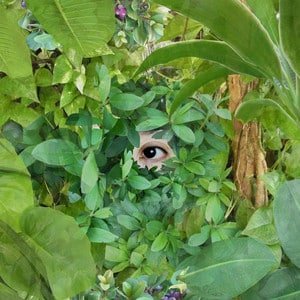
Mari Sekine Beginning (Bandcamp)
EK: Yes, it is a remix. The German producer Lena Willikens did it. It was a remix for a special reason. Actually, the B-side was supposed to be another Mari Sekine piece, but for various reasons, she couldn’t make the B side song in the end. Originally it was Lena Willikens who told me about Mari Sekine’s piece, so I thought I would ask her to do the remix for the single.
SS: I like the B-side a lot but the original is my favourite. This 12″ is probably my favourite EM Records release right now.
EK: Oh, really?
SS: I played it the first time and got the chills (frisson). I also like that it’s long, and that it sounds different every time I play it.
EK: Ha ha ha. That’s great!
SS: I wondered if there might be a double groove, so I had a good look at the record, holding it up to the light to check!
Should musicians take risks?
SS: Let me change the conversation slightly. Do you think musicians should take risks?
EK: Risks?
SS: Well, if a musician becomes famous for one style of music, and then goes down a completely different path, maybe the fans will desert them, but maybe they’ll become more interesting.
EK: Would you say it’s a risk? Is it a risk to take a different path?
SS: If you suddenly make another totally different style of music, if you lose your fans, you might not be able to make money any more. Your record company will drop you. Perhaps I should have asked if you think that musicians who take the most risks the most interesting?
EK: Yes, I do. First of all, musicians are creators, and it is natural for them to always try to do something different from what they have done before. I also like people who have an idea, and then execute it patiently, though it may take time. There are also musicians who just go with the flow. I understand the temperament of such musicians, but when releasing music, I ask them to think carefully and take their time. Even after the first version of a recording arrives, I’ll often ask them to redo it many times. For example 7FO is a musician who makes very strong music, and I listened to his demo and discussed with him how to progress the tracks. We both had a vague idea of what we wanted to do. It’s strange but when the music was finished, we both knew it, and we could share that moment.
Some people can’t work like that. They say I shouldn’t interfere. I tell them I won’t get in the way, but they get angry. I can’t work with that kind of people. I’m alone too and I understand that advice is precious, you can’t buy it, especially when you’re working on your own. When you are on the wrong path, and someone tells you you are on the wrong path, you can understand that. If you work completely on your own, it’s possible to make big mistakes.
SS: It must be hard. Musicians generally don’t want you to get in their way, I would imagine.
EK: I think you’re right. I think it’s good to do it this way, but in reality there’s no right or wrong way.
SS: If there is mutual trust, it will probably be OK.
EK: I think that the results can be better than previously imagined by doing it that way, I can be proactive, and I’m happy to work with this kind of person. Each to his own, but in my case, most of the people I work with are like this.
Japanese songs sung in Thai
SS: I want to ask you a little bit about another release, the Banchop Chaiphra and Samai Onwong 7″. I was very surprised when I heard that. I’m a big fan of Chieri Emi and also of Yoko Kon from Pinky and Killers, so I knew the two songs on the 7″, but the atmosphere is totally different. The music is Thai, right?

Banchop Chaiphra, Samai Onwong – Ya Doen Show c/w Sakura La Kon (Goodbye, Sakura) (Bandcamp)
EK: Yes it is.
SS: Why did you decide to release this 7 inch with the Thai versions on it?
EK: Well, it’s not so unusual to hear Thai musicians playing Japanese songs, I knew it had been happening since the 60’s. The Thai producer who licensed them to us had produced the Thai versions of two Japanese songs, which, when we heard them, had a great impact. Previously, the songs were very popular with DJs.
SS: It wasn’t that you wanted Japanese listeners to hear more Thai music? Sometimes it’s hard to get into music from another country, but if you have a good door, like this, it really helps. The melodies are familiar, but the styles are totally different, so it’s interesting, and it might be easier for people who want to hear a little more of that kind of music to enter the world of Thai music. But it wasn’t that. There were many reasons: the rights were not hard to obtain, DJs would want it etc …
The next 25 years for EM Records
SS: What are your plans for the next 25 years?
EK: The next 25 years? I hope we can continue with our current release policy and that people continue to enjoy what we release.
SS: Do you intend to license and release from overseas again?
EK: If there is an interesting project, I would love to do it, and I’m currently negotiating for another new release in Thailand, but, you know, not just anything will do, and I would like you to make sure that you make that understood please. There are a lot of countries in East and Southeast Asia, but not just any country will do. For example, there are labels in Europe and the U.K. that release music from various countries. It would take time to explain this concept in this interview, but I would like to stress that my approach to releasing Thai music is entirely different.
EM Records’ very important policy regarding musical colonialism
SS: Are you saying that EM Records is not just a label for re-releasing any overseas music whatever it is?
EK: We are releasing overseas music, but in doing that, we have a certain firm policy. It doesn’t mean that any foreign music will do. For example, a certain label is putting out compilations of music from all over the world, which is something we would never do. What is the perspective or ideological basis of a label that feels they have the right to do that? From what sense of entitlement are they doing that? For example, what would happen if a Thai label were to condense Dutch music onto a single compilation album called “This Is Holland”, what would happen? A Thai label would never ever do that because they have a different perspective. I have always thought of it in terms of colonialism, and from the position of being like a god of that colony, they think they have the right to compile all the music from that one country.
SS: Like stealing someone’s culture.
EK: Yes. That kind of perspective is an extremely questionable one. It’s having power over a country, or the way of thinking that you have, that point of view. It’s the idea that you are in a position to do it and that you can get away with it. Those labels might love the music they release, but don’t you think it’s a strange situation for a label to be condensing the music of a whole country? The Thai music that EM Records puts out has never been anything like “This is Thailand”. What we do is to seek an independent relationship, concentrating on works produced by particular producers, or releases by solo artists. EM release that music from a position of respect. But the perspective of aggregating the music of a country is completely different from that.
SS: When you put it like that, I suppose it sounds pretty dubious. I’m not as familiar with the details of those labels as you are. So what you want to stress is that EM Records’ policy is not to abbreviate or aggregate, but to make more of a deep dive into the music of one person and a celebration of that musician’s music.

EK: The difference is in the fact that we are just doing one-on-one projects, and we are releasing it because we respect the musician not because we respect the music of the country. If I were to release a compilation called, “This is Luk Tung from Thailand,” I think I would get a lot of criticism. I don’t think I should do that, and I have no intention of doing that. I would like people to understand and share that feeling, but there are still a lot of people who don’t understand.
SS: So you’re saying that this is a really important point that you want people to understand.
EK: That’s right. Look closely. We’ve never compiled music from one region of one country, and we’ve always done it on a one-to-one basis. We’ve always tried to get rid of that imperialism or colonialism, or that difference in economic power and so on.
SS: I’ve never really thought about this in terms of the balance of power.
EK: It’s difficult for countries with huge economic disparities to be equal. Culturally, too. For example, world music has become popular, but why do you think it’s not popular in Thailand? World music is a genre that is only understood within the G7, including Germany, France, Japan, the U.S. etc. They are the core, but Japan is part of it too. Thailand is an outlying country, and people from outlying countries don’t call themselves “world music”. I am thoroughly questioning the viewpoint of the idea of “world music”, eliminating it, and criticizing it all the time. World music is already the music of the G7, so that perspective is the start, and I have to be careful in my dealings with Thai artists, and we can’t release their music until we both have respect for each other’s position.
SS: I really hate that genre label “World music”. It means nothing. To me it reminds me of the words “gaikokujin” (“foreigner” in a polite way) and “gaijin” (“foreigner” in an impolite way) in Japanese. It groups disparate members together in a completely meaningless way.
EK: Yes. Basically that’s what is at the centre of it all.
SS: So you’re preparing another release of Thai music?
EK: Yes, now that they’ve seen our releases, and understand our working methods, it should be a little easier. Basic trust has been established because we do the licensing properly. It’s quite a big Thai producer’s music, so if all goes well, we’ll release it.
Future releases
SS: How many releases are coming next year?
EK: It would be nice if we could do about 10. At the moment I have about five that will be released. However, people don’t buy as many records as they did in the past. Salaries in Japan today are very low, so they can’t afford to buy records. I try to keep my prices as low as possible.
SS: As I was doing research for the interview, I noticed that the price of a vinyl LP 20 years ago is not that different from the price of an EM Records LP today!
EK: It hasn’t changed at all.
SS: I think that’s amazing.
EK: I was able do that because I’ve been in business for a long time, but I can’t do it anymore because the price of materials has gone up. I’m going to have to raise our prices.
SS: Which, would you say, are the most important releases on EM Records?
EK: They’re all important. I don’t release anything that isn’t important. Perhaps instead we should talk about the rules of the game.
SS: The rules?
EK: Yes, rules, ways of doing things, policies.
SS: Please do!

Turning point: the traffic accident
EK: It’s an old story, but I had a car accident about 20 years ago, about 5 years after I started the label, and my way of thinking changed radically. Before that, it was completely business, making money for a living, but that way of thinking evaporated, and I thought I had better release what I really like, what I value. I used to mix and match good selling releases with things that I liked but probably wouldn’t sell, like Roland P. Young’s “Isophonic Boogie Woogie”. But that sold well. I was wondering if I should put out something that I really like and cherish, when the traffic accident happened. I decided that this was not the time to be so hesitant, so I decided I would put out the music that I love and cherish, even though few people would probably understand it.
SS: So that is one of your rules?
EK: Yes, it’s one of my rules. They aren’t hard rules, but that’s the direction I wanted to go. Since this is a label, I had to think about sales, so if we spent a million or two million yen on a release and it sold only ten copies, I would not be able to continue, so I had to make a lot of difficult decisions while considering the new direction. This was about 10 years ago. I thought very hard about what I was doing.
SS: I see.
EK: It’s very difficult to totally understand the reasons for doing the things you do yourself. If you ask a musician “Why do you make music?” I don’t think there are many musicians who can answer that question. Because they like doing it, of course, but there must be many more things hidden under the word “like”, such as feelings and thoughts, as well as “liking it”. Of course, people do what they do because they like to do it, and no one does it because they don’t want to, so I thought about what is at the very bottom of it. I thought I should put it into words and explain it to people someday… and now that I’m getting older, I think it’s time to explain it properly … you never know when you’re going to die. At this point in time, I have a hypothesis that there are some musical forms that have a “spirit’. Not all of them, but some musical forms have a spirit of their own, and we are moved by that spirit. One day I realized that I had this hypothesis, and I’m doing practical demonstrations and research on it at the same time, with my releases on EM Records. People tell me that my label has so many different genres, but I don’t think in terms of genres. I’m releasing that music because I’m very moved by that particular musical form, it might be my heart reacting to the spirit, or it might be my head reacting to the spirit, or sometimes it’s I think it’s a combination of the two. That’s what I’m researching with EM Records releases. There are so many musical forms, but there are innovators in music, people who were the first to start a certain style, people who were the first to do something that no one had done before, and I am obsessive about that. I always respect people who are innovative, people who try something that hasn’t been done before. The innovative style is also really important, and such people make new musical forms develop a little bit. That’s my hypothesis. For example, there are a very small number of musicians who create their own musical forms, and there are people who want to create a way of making music, and there are musicians who want to create a way of expressing music itself.
SS: To make a new musical language?
EK: You could say that. To create the way that music is made. Contemporary classical musicians are probably doing that. They create a way of making music. I like such musicians. That kind of thing doesn’t lead to sales, to be honest, but that’s what I want to release. I do it because I feel strongly about helping new artists when they come along, and, there is a person who started me thinking about the music form itself, which I mentioned earlier, as if it has a spirit of its own.

Yasushi Utsunomiya and 91 Pieces of ‘C’
He’s a man from Osaka called Yasushi Utsunomiya. In the 80’s, he was a member and producer of After Dinner, and in the early 2000’s, he did a remix for Art Bears. The remix, “Tokusa-No-Kandakara (91 Pieces Of ‘C’)” was included in the box set of the Art Bears’ album, and it was a landmark in the history of remixes. Really superb. What he was doing with that remix was to explore the core of what it is about music that makes us feel moved or responsive to it. So he did a remix of the first song on “Hopes and Fears” called “On Suicide””, and to make a long story short, he changed all the notes of the vocal melody to one note, C. He chopped it up into small pieces and made them all C on the computer, and even though they were all C, they still had the feel of the original song. After listening to the original after that amazing remix, I felt that there was something inherited from the original, even though it is all C’s, and the melody is gone. Utsunomiya suggested that by stripping away the melody and the sounds of the instruments, we could strip away various things like dismantling the Russian toy matryoshka full of small dolls. I listened to the remix a long time ago, but I only half understood it. After listening to it over and over again, I became amazed by it. Even though the melody is gone, it sounds just like the original version. I want to show the core of what we are listening to, and I think this is the artist’s job to reveal the essence. I can’t do that kind of work because I’m a label operator, but I spent a long time thinking about it, and I wondered what would happen if I looked at it from a larger frame of reference in the opposite direction, the musical form that I am now considering in a kind of conclusion I mentioned earlier, which itself can be said to have a spirit. I was thinking that the spirit of the music form itself could be said to reside in the music form. I got the seed of the idea from “Tokusa-No-Kandakara”. Not from the point of view of the artist, but from that of the label, and the thing that appeared was this musical form and the spirit or core inside.
So, probably, it’s the spirit or core of the musical form, which is the thing that we are moved by. This hypothesis occurred to me, and now I’m carrying out the hypothesis.
There’s another thing related to this. When we talk about music, people ask me if the music I listen to is new or old, a dichotomy, whether it is sung by a man or a woman, yet another dichotomy, and lastly if the music contains a vocal or not, i.e. instrumental. These are attributes or properties of the music. The terminology is sociological, but these are the attributes we generally think of. I listen to music in such a way that it is not only about the music, but also about the people who listen to it. For example, some people ask whether the music is played by young people or old people, but that has nothing to do with the music itself, whether it is new or old. If you strip away all of these attributes, the real music’s core will emerge. That is what I am trying to hear. And I’m trying to maintain that attitude of trying to listen. It’s one way of listening. There’s a hip-hop artist named Juu (artist name JUU4E), who is from Thailand. He likes to listen to really old Thai music, music that was recorded a long time ago. He says that what he doesn’t know is always new and fresh for him. It doesn’t matter if it is an old recording, or if it was made this year, it’s always fresh to him. That’s why I often talk with Juu about the overall orientation of music. I try to listen to music in such a way that I can detect the attributes I mentioned earlier, such as old or new, male or female, hit or not, etc. I think I am listening to the true music that comes out of that. And when releasing the music, I try to listen to it from the historical, social, artistic and, if possible, political perspectives. Those four perspectives are important, and one or two of them are indispensable. I apply myself to those hurdles, or rules, when I decide what to release, so it’s still hard to find something that fits with them, but it’s fun. That’s the way I listen to music. So, if there is a song with vocals, I research the lyrics, as much as I can, because it’s very important to know what is being sung about. I try to listen to every detail of the pieces, and I also research the background of the artists. This is as an important topic to cover before discussing which albums are good or bad.

JUU4E Crazy World (Bandcamp)
EK: When you strip away all the unnecessary attributes, the musical form that I mentioned earlier is pretty much laid bare, but you can’t really explain why you like or dislike the musical form. I would never be able to understand your true feelings about why you like a certain piece of music. If you explain it in words, I might understand a little bit, but as you said before, you experience pleasure from music in your spine and scalp, but that kind of feeling is something that is exclusive to you, so I can never truly understand it, and other people can’t understand it. You can explain that in words, but there’s no way I can really understand how your spine tingles. But that explains why you like that music so much. Whether you like or dislike music is a truly personal feeling, so if you remove those personal feelings, you won’t be able to listen to the music. I understand that, I’m not a robot. Because I impose on myself the kind of rules I mentioned earlier, I think I can listen to music objectively to a certain extent, but at the end of the day, I think I probably choose music that touches my soul and spirit. I’m not completely sure about that yet. The human system is complex, so I can’t yet distinguish whether I like something because of something I’m thinking, or because my body reacts to it, as you do. That decision is made in a split second without any explanation, right, when your spine tingles?
SS: Yes, but my body decides, not me.
EK: I see. Anyway, what I’ve just talked about just now are rules in the village of EM Records. Some people have noticed these “rules” and are aware of them. They have actually asked me about the things I just mentioned, so there are definitely people who understand. But it’s also something that you don’t know unless you say it, so I guess you could call it that rule. If you listen to the music with these things in mind, I think you might enjoy it more. But as you say, if you listen to the music I release, and you get the chills/frisson, then that’s the best isn’t it? If people understand that I’m releasing music under the conditions I mentioned earlier, they’ll be able to get a different perspective.
SS: Well, one of the reasons for wanting to do this interview was to find out why most of the releases on EM records are so strange, are so unusual. I wanted to hear the reasons. Also, because I find the label so interesting, I want people to listen to EM Records releases, so as well as the conversations about your rules, I need your help to try to provide to the readers a door to enter the world of EM Records.
Door 1: Brenda Ray – D’Ya Hear me!
EK: You need an entrance? OK, let’s look at the most recent releases. The most recent one is a compilation of Brenda Ray from the UK, a repress of ‘D’Ya Hear Me!’, which is one of my bestsellers, loved by many people. I hope people will listen to this. The reaction to it and the feedback from people was very good.

Brenda Ray – D’Ya Hear me! (Bandcamp)
Door 2: Cycheouts – Counterattack Best Cuts 1995-2000
EK: Another release I got really good feedback from a lot of people, which was released in February this year, was Cycheouts, a Kansai hardcore jungle unit from the 1990s.

Counterattack Best Cuts 1995-2000 (Bandcamp)
Door 3: Kumachan Seal
Also, the album by Kumachan Seal, which came out after that, was also well received. This is a new recording (rather than a re-release).

くまちゃんシール Kumachan Seal (Bandcamp)
SS: How do the three releases fit into the EM record rules you described earlier?
EK: I think it’s mostly in there, but it’s about the music format. Another thing is that I’m Kansai-based, so I also want to support my friends by releasing their music. The Kumachan Seal release came out of the work of a friend of mine and his friends, who are very talented, and I wanted to support them, so I decided on the release. I’ve been a fan of Cycheouts since the 1990s, and they were the first hardcore jungle band in Kansai, or for that matter, in Japan. I’ve always respected them because they were innovators in Japan, and I’d always wanted to release their coolest works some day. All the releases are important to me so it’s difficult to choose. Another recent release is the third repress of the first Goat LP, the band led by Kansai-based Koshiro Hino. Goat might be an appropriate release, about which you might be able to say that their spirit dwells within the musical form. If you listen to it, you can clearly hear that they have their own style.
Door 4: Goat – New Games / Rhythm & Sound

Goat New Games / Rhythm & Sound (Bandcamp)
SS: I love it that album.
EK: They were trying very hard to do create something unique. I think they were successful with this.
Door 5: Kojun – The Water Garden
EK: I think that, say, Kojun from Okinawa’s “The Water Garden” in is a wonderful piece of work.

Kojun – The Water Garden (Bandcamp)
SS: Can you tell me a bit more about that?
EK: Kojun is a musician from Okinawa who put out an independent CD in 1993. I was permitted to produce an LP version of the album on its 30th anniversary. “The Water Garden” is also a work like no other, in terms of the musical form, in terms of the way of thinking, well, it’s one-of-a-kind. You can read more about it on the website.
Door 6: Henry Kawahara – Cybernetic Defiance & Orgasm
EK: There are so many releases that I cherish, it’s tempting to talk about them all. After that was Henry Kawahara, which had a really good reaction.
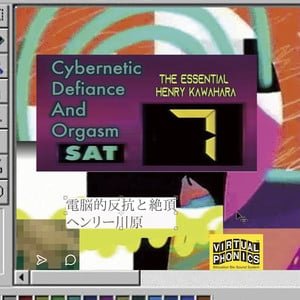
Henry Kawahara – Cybernetic Defiance & Orgasm (Bandcamp)
EK: He’s the guy who pioneered and created a unique Japanese genre of music called “cyber-occult”. When I heard it, I felt a bit sick. Mr Kawahara passed away more than 10 years ago. I contacted him and I was preparing to release it, but he died and I kept wondering what to do. I wanted to fulfil my promise. Everything was already done. I had selected the tracks and was just about to order the record when he died, so it was a great pity.
SS: What a shame!
EK: If I had released it at the time, it would have been something like a memorial release, and I didn’t want to do that. If you do that, the whole thing takes on a different colour. I wondered how long I should wait to avoid that feeling, and I decided 10 years. People would be able to listen to it without his death in their minds. But you know in the last ten years, trends in music, have changed a lot; ten years is a long time in music. So when I put this out three years ago, I had to change the sales direction, compared to what I would have done originally.
Ten years ago, there was almost no new age revival, and the general public didn’t know about it at all, so there would have been no point using that phrase. But now the new age revival is completely established, and I think it’s already half forgotten. So I released it after ten years. It’s the same music as ten years ago, but the way it’s understood now is slightly different. This is something I can’t control. I know I can’t go against the flow of the times.
SS: People who like it probably like it a lot, but as a door for beginners, it’s probably too difficult a door. Henry Kawahara, the hardcore door.
EK: However, it was very very popular, although I was very selective about who heard it at first. It confirmed that there are more people who want to hear this kind of thing than I thought. Also, some people said the timing was perfect, and some people who said that if I had released it ten years ago, it wouldn’t have been received so well. In Japanese, there is a word called “tarareba”. Tarareba is a word that means “if” or “what if”. What if I had released it 10 years ago? But I think it’s meaningless to talk about “ifs” and “what ifs” but there are people who say things like, “What was out 10 years ago didn’t sell much more”, as if they know what they’re talking about.
SS: What would happen if Spider-Man were a dog in the world of Marvel Comics? That kind of thing?
Door 7: Finis Africae – A Last Discovery
EK: That’s what I mean. Anyway, there’s something else, related to Henry Kawahara. In 2013 I released the world’s first compilation of the work of Finis Africae, a Spanish recording collective. Finis Africae’s compilation is called “A Last Discovery”. I was thinking of releasing in the order: Finis Africae, Henry Kawahara, but as I said before, I couldn’t release Henry Kawahara. So I released Finis Africae as stand-alone products, which also received great reviews. Some people say this started the Balearic revival. I didn’t intend to do that. But, as I said before, I was focusing on the context of musical form, so that’s the way I released Finis Africae. It was considered an important release for what led to the Balearic Revival and then to the New Age Revival. That’s what journalists said anyway… I thought: “Oh, really?”

Finis Africae – A Last Discovery (Bandcamp)
SS: If it makes it easier for people to understand, that’s okay, isn’t it?
EK: The leader of Finis Africae died before COVID happened. I hadn’t heard from him for a while and I thought it was strange, and then I found out he had died, and Henry Kawahara, a great musician, also died young.
SS: I have a quick question about Henry Kawahara. Is there a connection between him and Roland Kayn, the German musician?
EK: I don’t think there is. As I understand it, they made music in completely different contexts. Henry Kawahara came out of the unique world of new media and spirituality in Japan in the beginning of 1990s, but quit music around 1995 when the Internet became popular. Remember? That was around the time Windows 95 was released.
EK: It was different for people who had been doing it for a long time. Windows 95 brought the general public into the world of the Internet. Before that, people with a high level of media literacy used to play around in the computer internet world, doing all kinds of things. However, in Japan, and probably all over the world, Windows 95 was a game changer, and all sorts of people started using the internet. In my opinion, history was completely different before and after that, and Henry Kawahara was making music until Windows 95 came out, then actually stopped making music. Doesn’t this seem to make a lot of sense? He stopped making music because it became uninteresting for him. This is what he said: “It became kind of boring, so I don’t do it anymore.”
SS: Maybe it was a coincidence. Maybe not.
EK: I did some research on this and wrote an article about it in the CD commentary for the second Henry Kawahara compilation. It’s in English and Japanese. Anyone who reads that will get a better understanding.
EK: Volume 2 came out in 2022. It’s a hypothesis of mine that music always reflects the events that happen in society, and not that music changes society. I think that music is born out of various events in society, and not the other way round. I think there must be some connection between the fact that Kawahara quit music and the year 1995. “Boring” is the keyword. I didn’t have time to ask him what became boring, and it’s too late now.
If I had to give you one more recommendation, I’d say Japanese folk songs, and there’s also contemporary music. Do you like Yoshi Wada?
Door 8: Yoshi Wada – Off The Wall
SS: Not so much. Was he a member of the Fluxus group?
EK: I don’t think he was a proper member of Fluxus. I think he just happened to be there. He studied music with La Monte Young. He’s from Kyoto, he went to America in the late 60s and lived there for a long time. This was another release that was a huge turning point. A lot of the people who like Yoshi Wada’s music are young, about the age of Wada’s children’s generation, and they responded to his music impressively, in a very refreshing and fresh way. They’ve been very influenced by his music in creating their own. Musicians like Koshiro Hino from Goat and YPY, and Masayoshi Fujita, who does drone music. He’s had a very strong influence on a certain generation. That was also after we (EM Records and Edition Omega Point) released the CD. Before that, you couldn’t hear his music anywhere. It’s already become quite a rare release and it hadn’t been released on CD. I think we did a good job on this.

Yoshi Wada – Off The Wall (Bandcamp)
Door 9: Japanese Folk Songs
Also, there’s the Riyo Mountains (Riyo Sanmyaku) who researches Japanese folk songs which I’m releasing:
The series is still going. I think this is a fascinating release of music from the 2020s. The reason being that Japanese folk music is something that no longer exists for our generation. It means that we are now able to see that Japanese history that we know nothing about with fresh eyes. Traditional music can be inherited and taken over, but in the case of Japanese folk music, it hasn’t been done, it’s basically dead. Most of the folk songs are dead, like the famous Awa Odori. Some have been passed on, but the folk songs that preceded them, the folk songs from the era of the work songs, are all gone.
SS: I thought this story would come out right at the very beginning, in terms of important releases. I’m glad you talked about it because I think those songs are important (Footnote: Personally, I love the Bon Odori song called “Yodogawa Ondo”)
EK: I’m trying to do it in order. There is so much to talk about. He discovered a forgotten work song. So I listened to it, probably with different ears than people who had listened to folk music before. And then it was ridiculously cool. That’s what they discovered, and they tried to spread the word, DJing in different places and trying to rewrite the value of the past, the value of this folk music. I think we might have managed it.
SS: Are we talking about the “Kizaki Ondo” release?
EK: “Kizaki Ondo”, “Yumi-kagura”, “Sakai Ishinage Odori” and “Osharaku”.
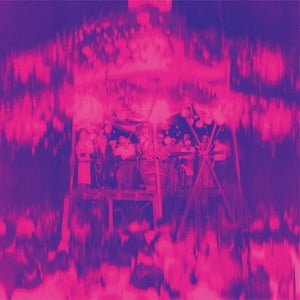
Kizaki Ondo (Bandcamp)

Yumi-kagura (Bandcamp)

Sakai Ishinage Odori (Bandcamp)

Osharaku (Bandcamp)
Those four are out now. There are a lot of things I want to release, but the people who were doing local folk music before COVID are not coming back together at all, and I want to interview them but I can’t. So there is a blank of two or three years. I’m starting over again. I feel that the way we listen to music has changed a bit since they came on the scene. I have the feeling that they’ve changed the rules of listening to music a little bit, or something like that. It’s still developing, so I don’t know what the conclusion will be yet, but I have the image of something different being born. I want to continue releasing as much as possible.
SS: It sounds as though you are going to be very busy for the foreseeable future. I look forward to hearing the new releases you put out. Many thanks for sharing your time with us.
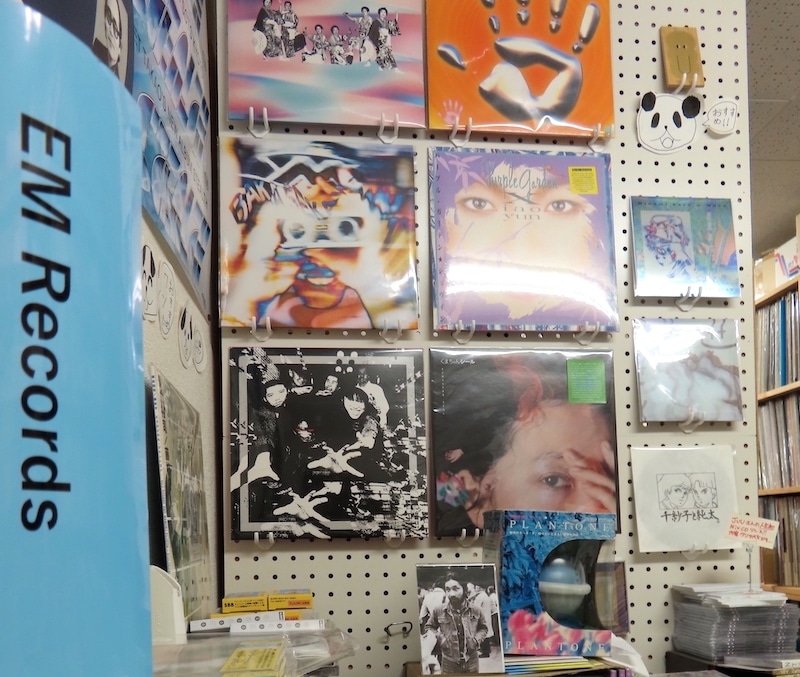
You can purchase music from EM Records here: https://emrecords.bandcamp.com/music or here: https://emrecords.ocnk.net (English), https://emrecords.shop-pro.jp (Japanese) or from Disk Union and other physical record shops.
EM Records shop : Showa Honmachi Building 3F, 1 Chome-11-18 Awaza, Nishi Ward, Osaka, 550-0011
Open to the public, Wednesdays, Saturdays, Sundays and holidays
Business hours: 11:00 – 18:00
Map: https://maps.app.goo.gl/vDQ6LS3rSLTA5P9x5
https://emrecords.net/



















